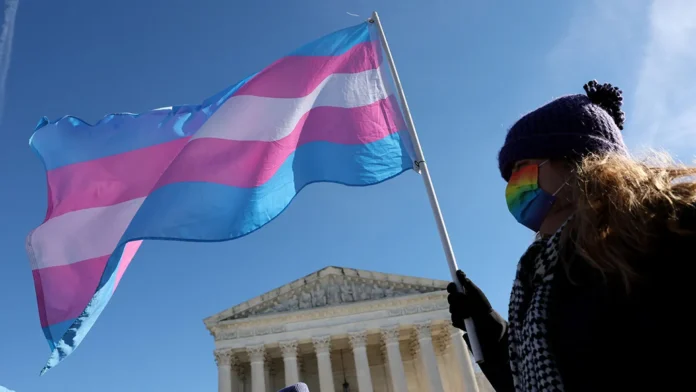The Washington Post stated in a recent editorial that the benefits of gender-transition treatments for minors, such as puberty blockers, have not been scientifically demonstrated.
“Treatment results that appear impressive in small groups often vanish when larger groups are studied,” The Washington Post editorial board stated in a story Sunday titled “Look to science, not law, for real answers on youth gender medicine.”
The Post was responding to arguments before the Supreme Court in the U.S. v. Skrmetti lawsuit regarding Tennessee’s puberty blocker ban. Experts say the Supreme Court’s ruling in the case might create a precedent for legislation governing transgender treatments for youngsters across the country.
“That’s why the Food and Drug Administration generally requires large, randomized controlled trials of drugs: to ensure that encouraging initial results aren’t mere statistical noise,” according to The Post.
“The court’s decision will be consequential in the 24 states with these restrictions, but it won’t resolve the crux of the debate over pediatric gender medicine: whether, as the plaintiffs argued, the treatments can be lifesaving or, as some global health authorities have determined, the evidence is too thin to conclude that they are beneficial and the risks are not well-understood,” according to the editorial board.
It told a story last year of a California doctor who admitted to not disclosing a study that revealed puberty blockers did not help mental health because he was afraid the data would be “weaponized” by transgender health-care critics.
“Medical progress is impossible unless null or negative results are published as promptly as positive ones,” the committee’s report stated. “The failure to thoroughly analyze these treatments offers Tennessee reason to be concerned — and legal grounds to ban them. We have major reservations when states make medical decisions for minors rather than leaving it up to their parents. However, in the absence of clear data—and with the likelihood of considerable publication bias or academics altering their results—parents may not have appropriate knowledge.
The Post also mentioned the dispute over puberty blockers in Europe, where “[m]ultiple European health authorities” reviewed scientific evidence regarding puberty blocker usage in children and concluded that it was “very low certainty,” “lacking,” and “limited by methodological weaknesses.” Last week, Britain prohibited the use of puberty blockers indefinitely due to safety concerns.
“No matter how the court rules, though, the federal government should supply the missing evidence at the heart of this dispute,” according to The Post. “Randomized trials would be ideal, albeit they are more difficult to implement presently, because youngsters in a control group may drop out and seek blockers and hormones elsewhere. Congress should, however, support new study of the highest possible quality, directed by scientists who are not gender medicine practitioners. To eliminate the potential of researchers picking and choosing what to show the public, these studies should establish timeframes and clarify the outcomes to be researched ahead of time. Children who experience gender dysphoria demand clearer answers.
U.S. v. Skrmetti is based on a Tennessee legislation that prohibits gender-transition therapies for juveniles in the state. The law, which was passed in March 2023, also targets health care professionals in Tennessee who continue to give gender-transition therapies to transgender kids, subjecting them to penalties, lawsuits, and other responsibility.
